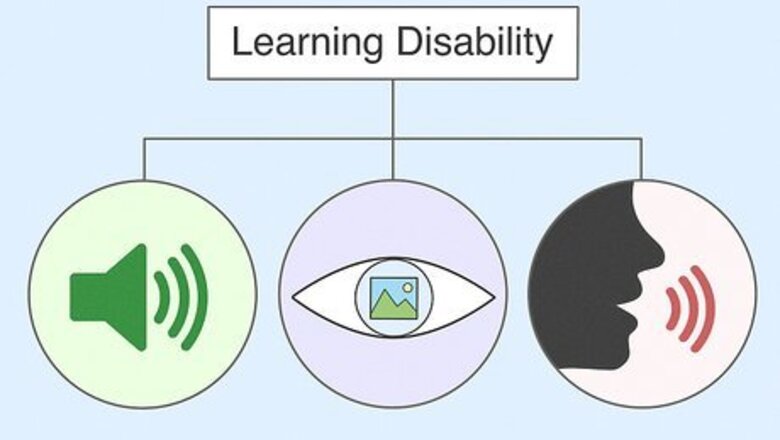
views
X
Trustworthy Source
National Health Service (UK)
Public healthcare system of the UK
Go to source
Recognizing the Symptoms of a Learning Disorder
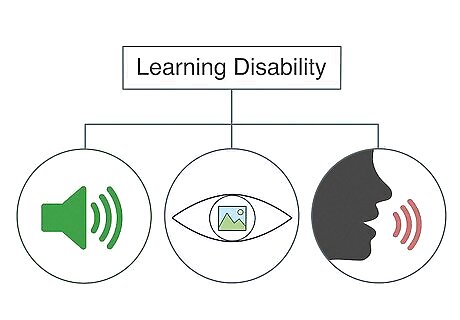
Understand that there are many types of learning disabilities. Each of these disabilities affects an individual in different ways and can produce different types of symptoms. LDs can affect the way the brain processes audio, visual, or speech-related information or stimuli. LDs are the result of neurological-based problems that affect the way that the brain receives, processes, stores, and responds to information: the brain's cognitive functioning. LDs are not curable, they are lifelong. But, they can be managed with the proper help.
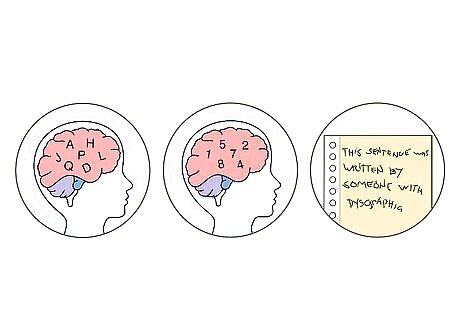
Know the most common LDs. One in every five Americans is diagnosed with a LD. Traits overlap a bit, which means that it's sometimes hard to get the right diagnosis. For example, poor-handwriting skills can be the result of difficulties processing symbols (dyslexia); or from poor spatial organization skills (dysgraphia). The most common LDs are: Dyslexia is a reading disability that affects how one interprets sounds, letters and words. It can affect general vocabulary skills as well as one's reading speed and efficiency. Symptoms of dyslexia include late speech, difficulty with handwriting, and difficulty rhyming words. Dyscalculia affects math and "number sense." Traits include trouble with memorization, difficulty with learning to count and other math skills, difficulty measuring things (e.g. when cooking), and trouble with concepts like judging distance and time. Dysgraphia is a LD of writing. Handwriting tends to be clumsy and hard to read, with issues with spelling and capitalization. Communicating through writing is difficult and takes a long time. Other learning disabilities include auditory processing disorder, language processing disorder, nonverbal learning disability, and visual perceptual/motor deficit.
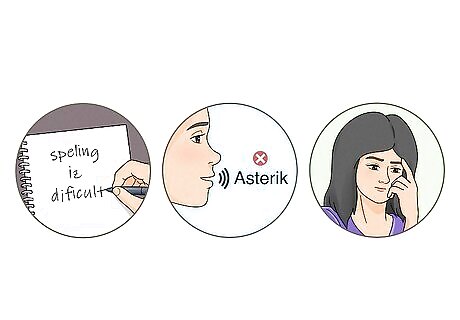
Know common experiences in people with learning disabilities. Although each LD affects the brain in a different way, there are some common traits across LDs. People with LDs often have many of these traits: Trouble spelling. Avoidance of reading and writing. Difficulty summarizing. Trouble with open-ended questions. Poor memory. Difficulty with abstract concepts. Trouble expressing ideas. Mispronunciation. Easily distracted. Mixing up right/left or poor sense of direction. Trouble following directions or completing tasks. Creativity.
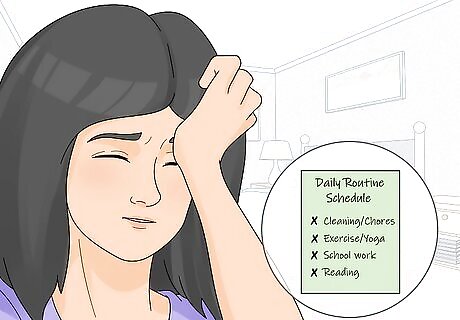
Observe daily patterns and routines. Take well-detailed notes if necessary, and look for the most obvious symptoms of a LD—poor memorization, delayed social skills, and frustration with academic tasks like reading or writing. Do you or your child perform daily tasks in a different way each time? This can be an indicator of a LD. Do this over an extended period of time.
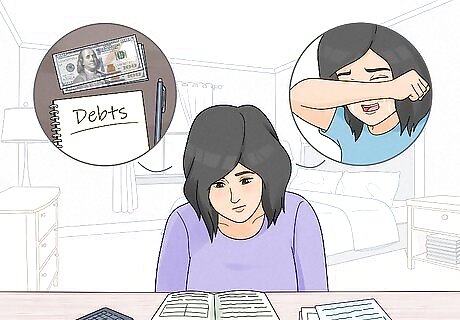
Consider the alternative causes. Learning disabilities aren't the only things that can influence learning. Life circumstances and other brain-related conditions can play a role too. Think about life circumstances and other conditions that could be influencing your or your child's life. Life circumstances like poverty, grief, food insecurity, bullying, abuse/neglect, health issues, discrimination, and family conflicts can make it harder to focus on learning. Mental health issues like anxiety and depression can impact learning. Neurodivergence like autism, ADHD, dyspraxia, and more can impact learning while not being classified as learning disabilities.Tip: It may be only one of these things, but some people are dealing with multiple challenges at the same time. For example, many people with ADHD have co-occurring learning disabilities.
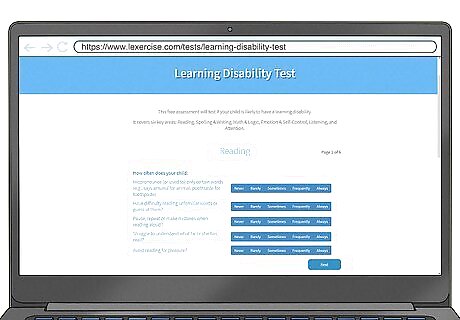
Try taking a quiz to see if a learning disability is possible. Quizzes can't formally diagnose you, but they can give you a sense of whether it's worth getting tested.
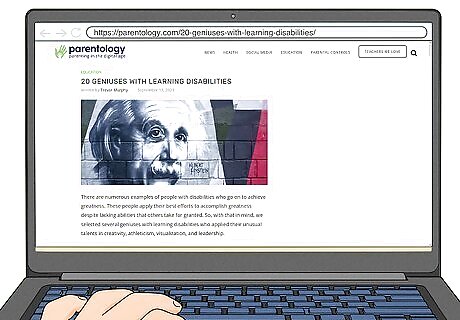
Understand that having a LD does not mean that a person is in any way unintelligent or incapable. In fact, many people with LDs have average to above average intelligence. Charles Schwab and Whoopi Goldberg have been diagnosed with LDs, and many suspect that Albert Einstein may have had one as well. Celebrities Tom Cruise, Danny Glover and Jay Leno all have dyslexia, and have actively campaigned to raise awareness for the disability. Historians and researchers suspect that these historical figures may have also had some form of learning disability: George Patton, Walt Disney, Leonardo da Vinci, Thomas Jefferson and Napoleon Bonaparte.
Obtaining a Professional Diagnosis (adult)
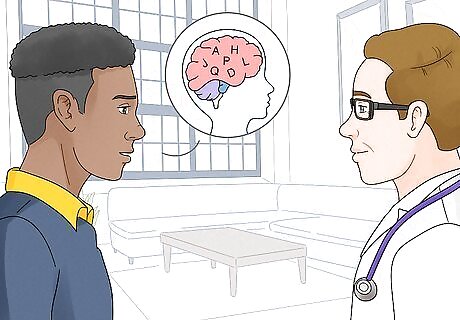
Consult your personal medical physician. If you demonstrate symptoms or suspect that you may have a LD, the first step toward seeking help is to contact your personal doctor. Your physician will discuss your options with you, and more specifically, look for any further symptoms. If necessary, your physician can point you in the proper direction for further screening. This is not a diagnosis, but rather, only the first step of several that are required to be properly diagnosed. Being properly diagnosed includes initial consultation, screening, and then final diagnosis.
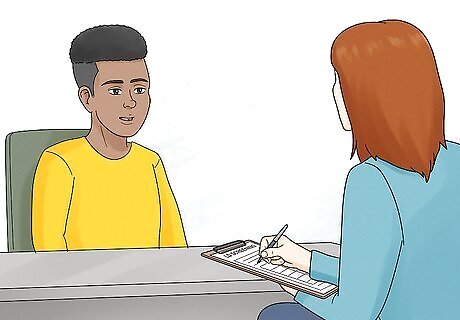
Get screened for a LD. Screening is an informal process that takes place between you and a LD advocate. After you have been screened, your advocate will inform you whether-or-not you should pursue further diagnosis. Screening is relatively inexpensive. It consists of observation, an interview, and brief testing. Mental health clinics and state rehabilitation agencies can provide initial consultation. Mental health clinics and local universities oftentimes provide assessments that are priced on a sliding scale.
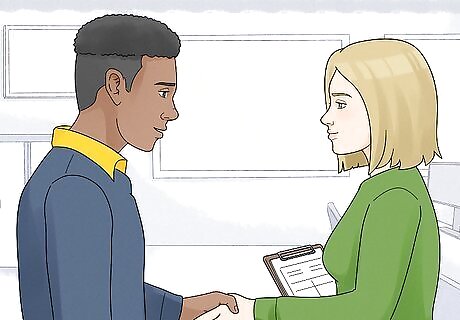
Get a professional evaluation. Most general practitioners can't diagnose learning disabilities, but they may refer you to a specialist. After your advocate is finished evaluating all of the information, you will need to meet with them again in order to discuss the results.
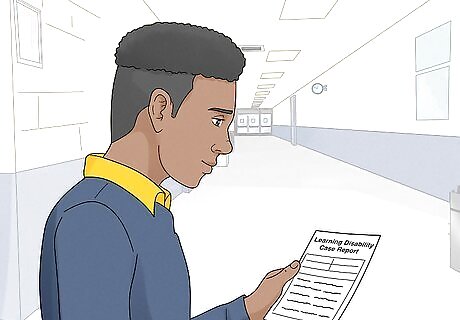
Return for consultation. During this meeting your advocate will diagnose and provide you with a written report that details your specific LD. This report will provide learning specialists with the information that they need to provide you with any further help. This report can also be used to make a request for special accommodations at school or work.
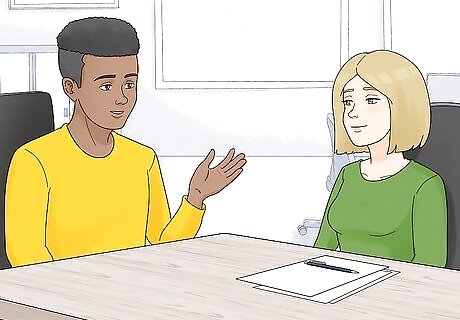
Ask questions. When you return to discuss the results of your evaluation, be sure to ask your advocate about anything that is unclear to you. Are there any terms that you do not understand? Are you unclear as to what to do next? Or what your advocate expects?
Obtaining a Professional Diagnosis for Your Child
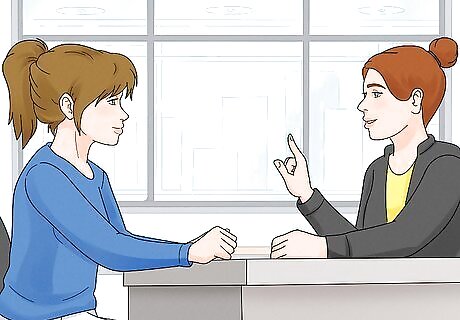
Contact your son or daughter's teacher. Let them know about your concerns. The teacher, or another professional, will begin collecting information about your child's scholastic performance. Once enough information has been collected, the teacher or learning specialist will provide your son or daughter with a series of learning strategies or supplemental learning activities. A school cannot collect information about your son or daughter without your written consent.

Review the learning strategies and activities provided by your learning specialist. Make sure that your son or daughter's weaknesses are actually being addressed in the supplemental learning plan that has been provided by the specialist. Do the expectations of the learning plan accurately address your son or daughter's needs?
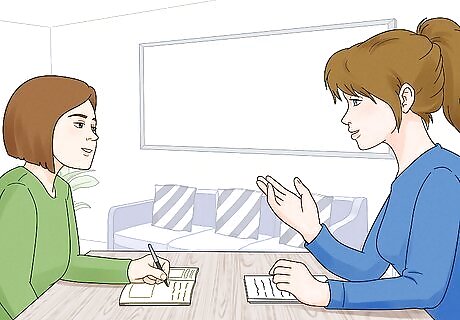
Follow the routine provided by your learning specialist. These routines are designed to help your son or daughter become a more-effective student. Furthermore, this routine will help learning specialist more accurately diagnose a specific type or kind of LD. Like any exercise, however, these activities will only work if they are followed exactly as planned. Take action to implement these changes as quickly as possible, like getting a tutor for your child or trying different learning strategies. If your student gets targeted help, they may be able to overcome whatever they're struggling with. You can try these strategies without having a formal diagnosis. In fact, in some cases, having a diagnosis of a disorder or disability can make it harder for a student to overcome their learning difficulties, so if you can intervene, it may be better in the long-term.
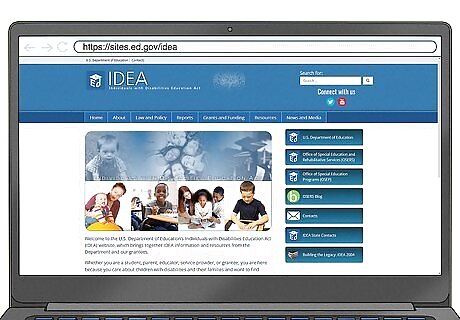
Seek formal evaluation if your child is still struggling. If you're providing your child with one-on-one support to help them succeed in school, but they're still struggling after a whole school year, they may need additional help and resources in order to do well. In that case, you should have your son or daughter formally evaluated. Your son or daughter's teacher will be able to provide you with more information regarding the process. The "Individuals with Disabilities Education Act" ensures free-screening for your child. Formal screening will include a series of tests and interviews, and the committee may suggest special education.
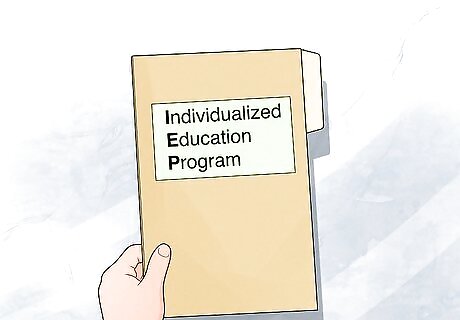
Obtain an "Individualized Education Program." After the committee has finished evaluating all of the information, you will meet with them to create an "Individualized Education Program" for your son or daughter. This program will outline the learning objectives for your child, and will also provide you with information regarding the services that your school or school district offers. You have the right to be part of this process! If you have specific learning goals for your child, they should be discussed at the post-evaluation meeting.
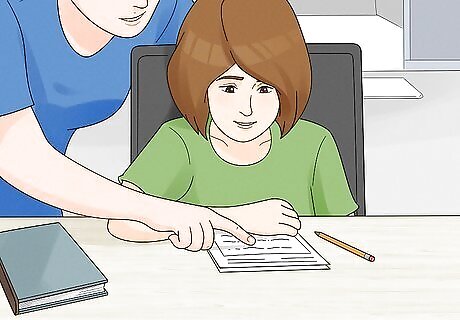
Follow the "Individualized Education Program." Depending on the specific learning goals and LD, it may take quite some time to see any significant improvement from your child. The "Individualized Education Program" may have a timeline of development. This is only a guide, not an exact rule.
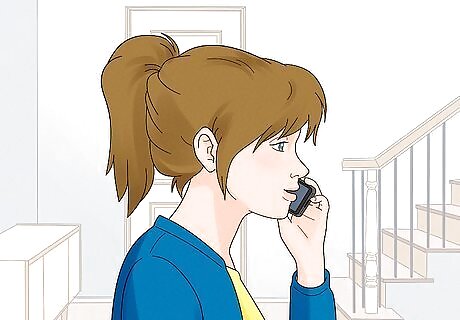
Contact the school district if you believe that the program is not working. You have the right to have your son or daughter re-evaluated if the "Individualized Education Program" that you received is not producing significant results. LDs are very difficult to diagnose, which means that re-evaluations are not uncommon. Because symptoms tend to over-lap, even highly trained experts can misdiagnose a specific type or kind of LD.



















Comments
0 comment